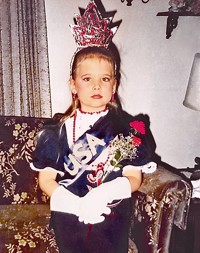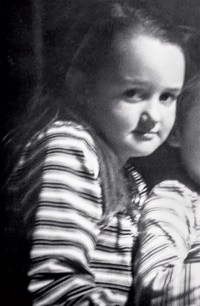Advertisement
Grab your lab coat. Let's get started
Welcome!
Welcome!
Create an account below to get 6 C&EN articles per month, receive newsletters and more - all free.
It seems this is your first time logging in online. Please enter the following information to continue.
As an ACS member you automatically get access to this site. All we need is few more details to create your reading experience.
Not you? Sign in with a different account.
Not you? Sign in with a different account.
ERROR 1
ERROR 1
ERROR 2
ERROR 2
ERROR 2
ERROR 2
ERROR 2
Password and Confirm password must match.
If you have an ACS member number, please enter it here so we can link this account to your membership. (optional)
ERROR 2
ACS values your privacy. By submitting your information, you are gaining access to C&EN and subscribing to our weekly newsletter. We use the information you provide to make your reading experience better, and we will never sell your data to third party members.
Environment
Profiled Professionals' Career Paths and Overall Job Outlook
June 7, 2004
| A version of this story appeared in
Volume 82, Issue 23
Flavor and fragrance chemists are working at the intersection of biology, psychology, and chemistry, yet these careers are not heavily promoted as a choice for chemists. Most of the scientists in this story made transitions into their current careers. For example, Elizabeth Piaggesi received a B.S. in chemistry and an M.Ed. in science education from Lehigh University in 2002, then earned her M.S. in chemistry from Lehigh in 2003. She was initially leaning toward the pharmaceutical industry when a networking contact led her to her position at FMI, a full-service contractor to the fragrance, household, and personal care industries.
Procter & Gamble perfumer Zerlina Dubois attended Smith College, Northampton, Mass., and earned a degree in studio art and biochemistry. Then she went to the University of Massachusetts, Amherst, and earned her M.S. in organic chemistry but had an eye toward medical school. She became a perfumer totally by chance when P&G came to recruit on campus. A recruiter saw that Dubois had an art background and asked her if she was interested in P&G's three-year training program for perfumers.
Dubois' colleague Stacy Hertenstein has a B.S. in chemical engineering from the University of Missouri, Columbia, and also went straight into the perfumer-training program when someone looking for new trainees noticed the creative work listed on the résumé that she had circulated at the firm.
It takes 10 years of extensive training to become a perfumer at Firmenich, one of the largest companies in the industry. According to Bob Fuller, director of applied technology in Firmenich's perfumery division, many perfumers join the company in some other function before they enter the training program.
In contrast, Derek Spors received a B.S. in food science from the University of Wisconsin, Madison, in 2000 and joined Ben & Jerry's Ice Cream right out of school. His older brother, who was working at Good Humor-Breyers, Green Bay, Wis., helped Spors obtain an internship there. Based on that experience Spors decided that he wanted to stick with the ice cream industry; a networking contact through one of his professors led him to Ben & Jerry's.
Bob Swaine has a B.S. in pharmacy from Northeastern University, in Boston, and an M.S. in food science and technology from Rutgers University. Swaine pursued the pharmacy degree on the advice of his father, who worked in both perfume and flavors, because it provided a good background and hands-on experience in making emulsions and extractions, while his graduate studies at Rutgers provided a foundation in food science and flavors.
U.S. demand for flavors and fragrances is forecast to grow more than 5% per year through 2007, approaching $6 billion, according to a recent study by the Freedonia Group, a market research company. "The demand for flavors and fragrances will be driven by ongoing consumer preferences for natural ingredients and rising consumer interest in more complex and authentic flavors and fragrances," the study notes. In addition, the growth in low-fat and low-carbohydrate food and beverages will stimulate demand for flavors and fragrances to improve the appeal of these products.
MORE ON THIS STORY
FROM WHERE TO HERE?
Profiled Professionals' Career Paths And Overall Job Outlook
FIRST COURSE
Basic Training For Food Scientists





Join the conversation
Contact the reporter
Submit a Letter to the Editor for publication
Engage with us on Twitter